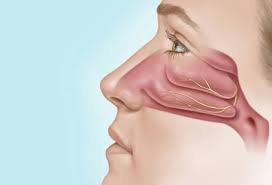For those who love the great outdoors, dealing with nasal allergies can be a significant challenge. Sneezing, congestion, and a runny nose can sap the joy out of an afternoon hike or a weekend picnic. Here is how you can still enjoy outdoor activities without letting allergies ruin your plans:
Limit Daily Outdoor Activities
While the urge to spend all day outside may be strong, your allergies might thank you for paying attention to local pollen counts. Before heading out, take a moment to check the daily pollen forecast using a trusted website or an app. High pollen days trigger stronger seasonal allergic reactions, so scheduling activities during lower counts offers a safer option.
If staying indoors isn’t on your agenda, try choosing late afternoon or early evening for your outing. Pollen counts are usually at their highest in the morning, making the latter part of the day a safer window for allergy sufferers.
Protect Eyes and Nose
Outdoor allergens like pollen love hitching a ride on your face and clothes, but a few small adjustments can keep them at bay. Sunglasses or prescription glasses do more than shield your eyes from sunlight; they act as a barrier, reducing the exposure of your eyes to airborne allergens. Look for wraparound styles for even better protection.
For nasal allergies, wearing a lightweight mask can work wonders. Masks create a physical barrier, reducing the amount of pollen and outdoor irritants you breathe in. This is especially helpful on high-pollen days or during windy weather, when allergens are more likely to be airborne.
Take Showers After Exposure
After spending time outdoors, allergens may stick to your skin, hair, and clothes. Once you return home, make it a habit to rinse off by showering and changing clothes. This practice not only removes the pollen clinging to you but also stops it from spreading throughout your home.
For additional relief, nasal irrigation using a saline solution helps clear allergens from your nasal passages, offering relief from lingering congestion or irritation. A quick rinse in the evening can minimize overnight irritation and help you wake up feeling refreshed.
Try Solutions Like Medication
Over-the-counter allergy medications, such as antihistamines or nasal sprays, typically provide quick symptom management. If over-the-counter options don’t work for you, speaking with a healthcare professional about prescription treatments might be worth exploring.
For those who prefer a natural approach, products such as saline sprays or allergy balms applied near the nostrils are gentle alternatives that help soothe irritation. Here’s an easy-to-follow checklist to help you plan ahead and manage nasal allergies effectively:
- Check pollen levels online before heading out.
- Wear sunglasses to protect your eyes from irritants.
- Shower and change clothes as soon as you come back inside.
- Keep allergy medication on hand or try nasal rinses if preferred.
Find a Specialist for Treating Nasal Allergies
With these practices, enjoying outdoor activities with nasal allergies becomes much easier. By incorporating simple precautions into your routine, you can focus on getting sunshine and fresh air rather than sneezing. Schedule an appointment with an allergy specialist to learn the most ideal ways to control nasal allergies.
Related Articles
How Dental Crowns Support Teeth After Root Canal Treatments
The Importance of Physical Activity in Long-Term Weight Loss





